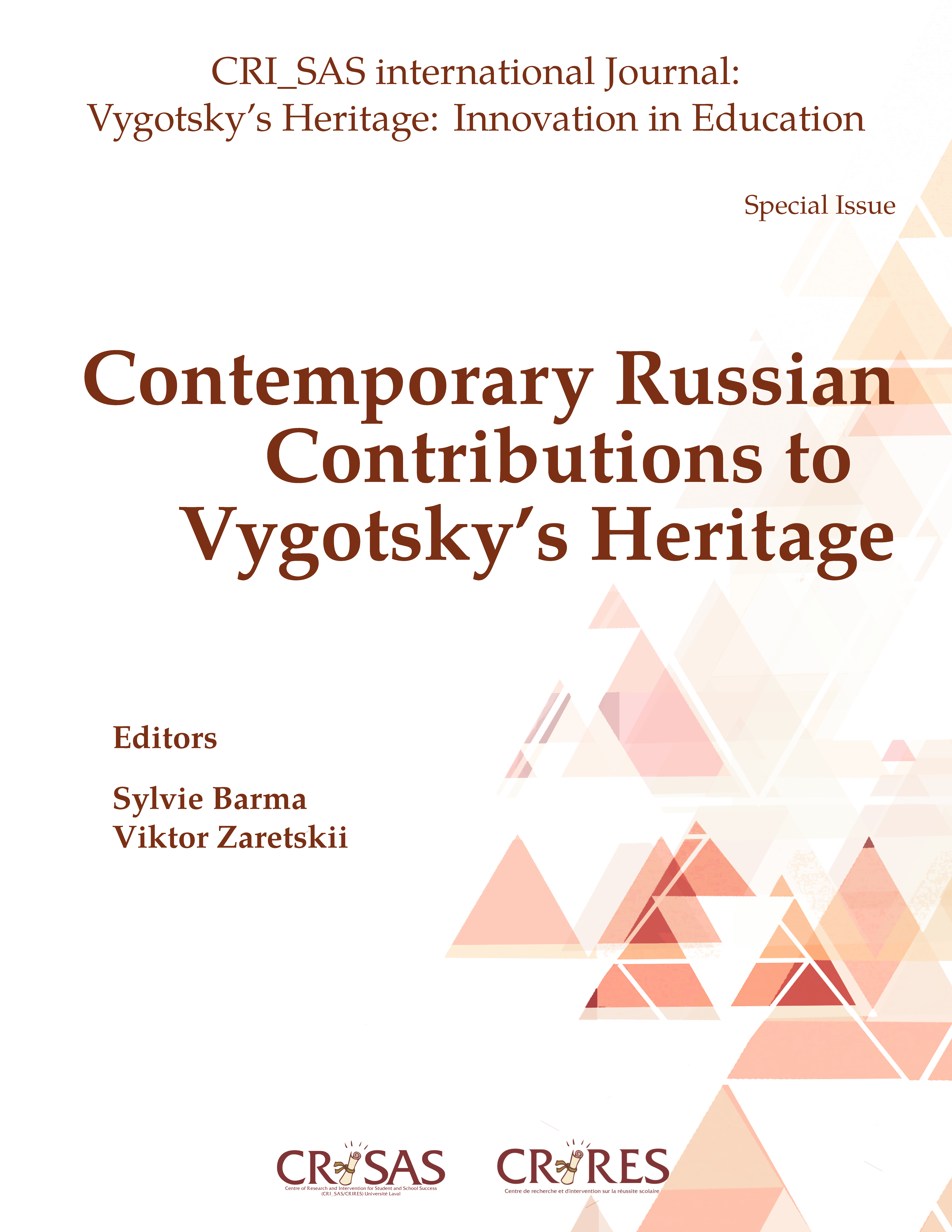“Chess for overall development” software in the frame of Reflection and Activity
DOI :
https://doi.org/10.51657/ric.v4i1.41001Mots-clés :
Cultural-historical psychology, Development, Learning, Help in overcoming learning difficulties, Pedagogics, Reflective-activity approach, Chess for overall development, Ability to think in mind, Stage-by-stage formation of mental actions, Computer software.Résumé
The paper discusses “Chess for overall development” project, which is based on Reflection and Activity Approach in helping overcome learning diÿculties. The project has been running for over 12 years now, putting theory of the approach into practice in several cities throughout the Russian Federation. One of the key elements in this project is developing the ability to think in mind using chess problems and sequential progress through material where solving of problems becoming more idea-based and less action-based using the notion of the stage-by-stage formation of mental actions. Unlike other methods teachers use to teach chess, the Chess for Overall Development project views chess primarily as a psychological instrument for helping develop the ability to think in mind. The basis for the ideas of the project is L. S. Vygotsky’s cultural-historical psychology. Vygotsky’s notions on the development of the human psyche are implemented and partially expanded as part of the project. In recent years the software “Chess for overall development” was made designed with full compatibility with the principles of the reflection and activity approach and implementing the notion of the ability to think in mind development and sequential transition from material to ideal plane of mental actions. We present detailed description of the software features as well as its approbation results collected in schools, universities and hospitals.
Références
Alekseev, N. G. (1990). Shakhmaty i razvite myshlena [Chess and cognitive development]. In V knige shakhmaty: nauka, opyt, masterstvo [In Chess: Science, experience, mastery] (pp. 41–53). Moscow: Vysshaya Shkola.
Galperin, P. Y. (1966). Psikhologa myshlena i uchenie o poetapnom formirovanii umstvennykh dejstv [Psychology of thinking and stage-by-stage formation of mental actions theory]. In E. V. Shorokhova (Ed.), Issledovanamyshlena v sovetskoj psikhologii [Cognition research in soviet psychology] (pp. 236–277).Moscow: Nauka.
Zaretskii, V. K. (2013). Traektorii razvitiya predstavlenii o refleksii i ikh ispol’zovanie v praktike organizatsii resheniya problem [trajectories of development of the notions of reflection and its applications in the practice of organised aid in solving problems]. Psikhologiya v vuze [Psychology in Higher School](4), 55–97.
Zaretskii, V. K. (2016). Odin shag v obuchenii – sto shagov v razvitii: Ot idei k praktike [Vygotsky’s Principle "One step in learning - One hundred steps in development": From idea to practice]. Kul’turno-istoricheskaya psikhologiya [Cultural-Historical Psychology], 12(3), 149–188.
Zaretskii, V. K., & Gilyazov, A. (2016). Shakhmaty dlya obshchego razvitiya. rabochaya tetrad’ dlya zanyatii shakhmatami [Chess for general development. A workbook for chess studies].Moscow: «Raikhl’» Publisher.
Zaretskii, V. K., & Gilyazov, A. (2017a). Chess for overall development. The educator’s guide to teaching chess in primary school, volume 2. Moscow: Otto Reichl.
Zaretskii, V. K., & Gilyazov, A. (2017b). To development through chess: reflection and activity approach. The educator’s guide to teaching chess in primary school, volume 1. Moscow: Otto Reichl.
Zaretskii, Y. V. (2014). Sub’ektnaya pozitsiya shkol’nikov po otnosheniyu k uchebnoi deyatel’nosti v raznykh vozrastnykh periodakh [Schoolchildren’s position of agency towards the learning activity in different ages.Moscow: Ph.D. (Psychology) Thesis.
Zinchenko, P. I. (1961). Neproizvol’noe zapominanie [Involuntary memory]. Moscow: Izd-vo APN RSFSR.
Téléchargements
Publié
Numéro
Rubrique
Licence
© Aleksei A. Chernysh 2017

Cette œuvre est sous licence Creative Commons Attribution - Pas d'Utilisation Commerciale - Pas de Modification 4.0 International.

